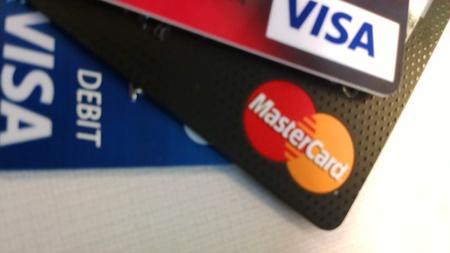Credit Cards Erase Requirement to Sign Sales Slips
Major credit card networks will not longer require a signature on a receipt. They say signing clogs check out lanes, costs businesses money tracking slips and the handwriting often can’t be read anyway. They say technology offers better ways to prevent fraud.

Most of the nation’s major credit card companies will no longer require a customer to sign their name when they make a purchase.
The companies say emerging technologies provide far more security than handwriting and signatures have outlived their usefulness.

Officials with Visa, Mastercard, American Express and Discover say demanding a signed credit card receipt can jam up the checkout line and sometimes cannot be read anyway.
So the companies are giving retailers the option to skip the signature.
Mastercard Vice President of U.S. Market Development Linda Kirkpatrick says there are better ways to prove who bought what.
“Different forms of authentication like tokenization, biometrics, EMV or chip technology, are far superior to a handwritten signature,” Kirkpatrick says.
She adds that credit card networks have wanted to switch away from hand-written forms of security for a long time.
“We’re actually a little more than two years into the migration to chip technology here in the U.S.,” Kirkpatrick says. “So now is the time, with this new technology and with these more sophisticated forms of authentication, to rid ourselves of the signature.”
There are some businesses that still rely on the scrawl at the bottom of a receipt.
But servers at restaurants, for instance, need not fear about losing tips if no one is forced to put pen to paper.
Credit card terminals can be brought to a patron’s table.
If the machine is not set to accept a PIN number, as most European businesses require, the U.S. establishment could still demand a signature.
